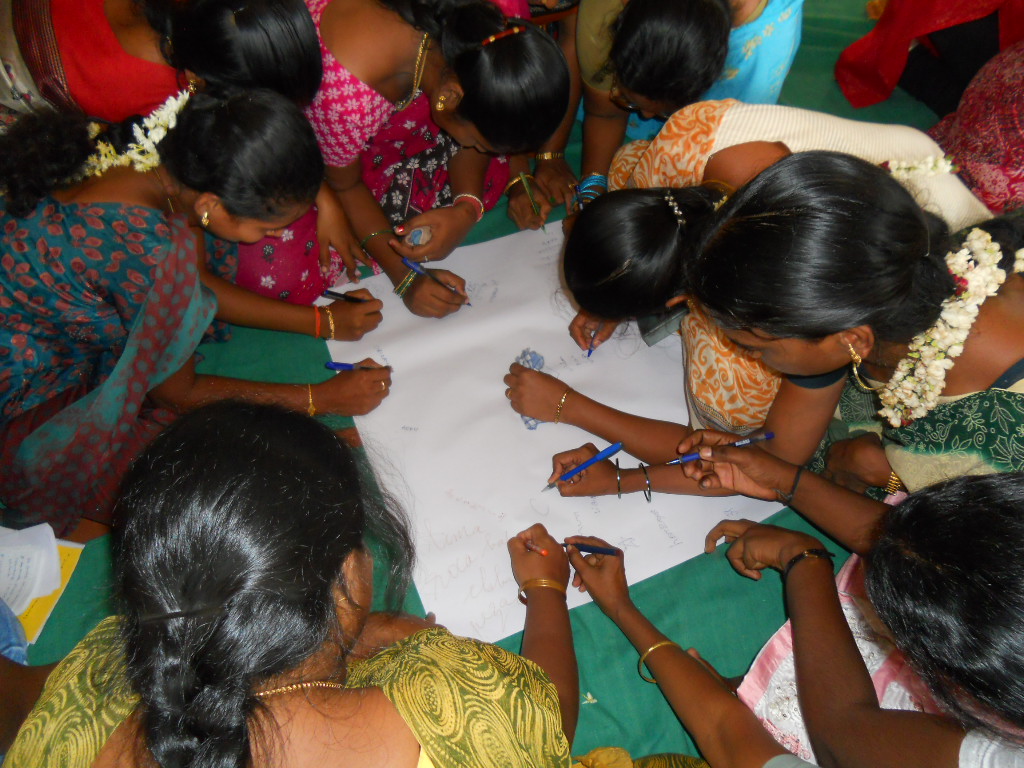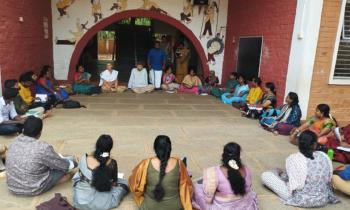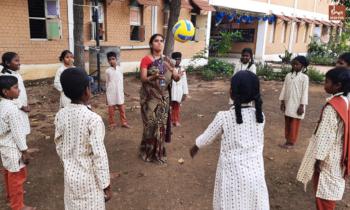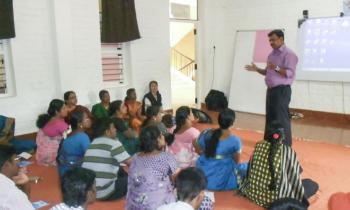Eliminating Punishment in School
Spare the rod, spoil the child, they used to say, but corporal punishment can lead to physical injury and emotional trauma. So, at Isha Vidhya, teachers learn new methods of handling students and situations.

Spare the rod, spoil the child, they used to say – telling us that if we wanted our children well brought up, it was necessary to discipline them physically. Our daily newspapers are full of the more extreme examples – of punishment taken too far, leading to physical injury and emotional trauma. On many occasions, the punishment and humiliation provokes children into taking drastic steps.
A Law Is Not Enough
Teachers in India often view corporal punishment as an acceptable tool to maintain discipline in their classrooms and also establish their authority. Even today, corporal punishment in schools, especially in rural or government schools, is an accepted tool. This is so, despite the new set of guidelines issued by the Ministry of Women and Child Development that bans physical punishment of students. Obviously, passing a law is not enough. Corporal punishment is the only form of disciplining that most of these teachers have known. They were subjected to it when they were students, and they see their colleagues using it on an almost daily basis. What is needed is a change in mind-set, and alternative techniques in student management. Unless teachers are trained in new methods of handling classroom conditions, they will likely not change their ingrained ways.
Changing Ways
At Isha Vidhya, all newly recruited teachers undergo a rigorous “Basic Methodology Workshop” where they learn new methods of handling students and situations. The focus of the workshop is to:
- Explore techniques for better class control, and methods to tackle common problems that teachers encounter
- Learn how to interact with students
- Understand the basic methodology of Isha Vidhya
Before the workshop begins, teachers read articles about the current education system and its outcomes. They start the workshop with a detailed discussion to help them recognize the need for better methods of imparting education. Initially, the discussions are held in small groups and the whole group shares their thoughts so that everyone gets to contribute, as well as learn from others.
A Little Drama

To get the teachers to think of ways to handle various classroom situations, a little theatre is also employed. Teachers are divided into groups and given different situations. Each group presents two scenarios in the form of a skit – one, positive, with effective methods of dealing with the situation, and the other, negative, with ineffective solutions to handling the same situation. The audience, consisting of the rest of the participants, gives feedback on both the scenarios. This workshop module helps the teachers reflect on the way they handle common situations and gives them ideas for better responses.
Many advanced modules form part of the Basic Methodology Workshop which help teachers unlearn outdated techniques and responses, and learn better ones which inspire, nurture and develop self-discipline among their students.
To learn more about Isha Vidhya and education in rural India, visit the Isha Vidhya homepage.











